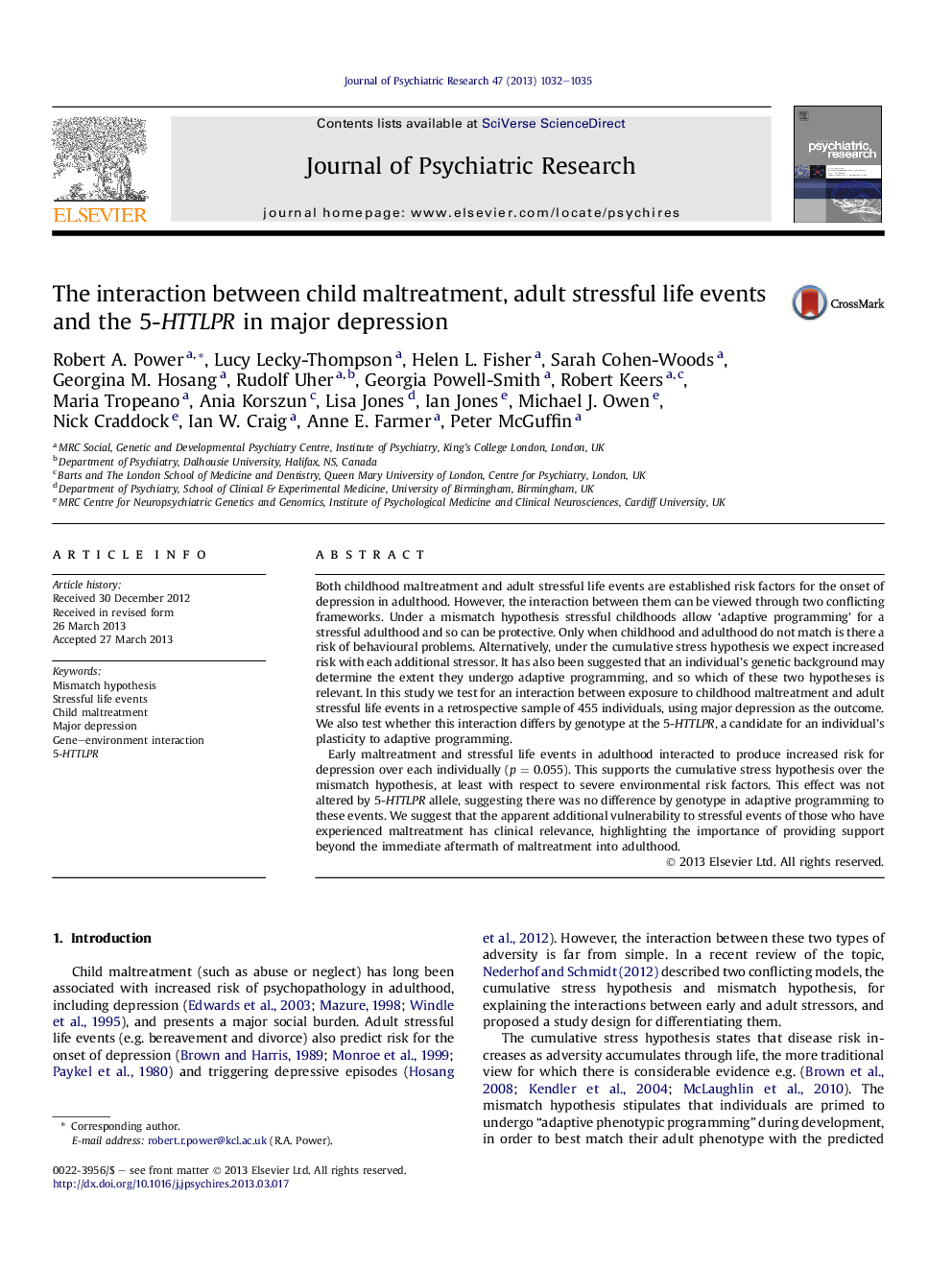| Article ID | Journal | Published Year | Pages | File Type |
|---|---|---|---|---|
| 10302584 | Journal of Psychiatric Research | 2013 | 4 Pages |
Abstract
Early maltreatment and stressful life events in adulthood interacted to produce increased risk for depression over each individually (p = 0.055). This supports the cumulative stress hypothesis over the mismatch hypothesis, at least with respect to severe environmental risk factors. This effect was not altered by 5-HTTLPR allele, suggesting there was no difference by genotype in adaptive programming to these events. We suggest that the apparent additional vulnerability to stressful events of those who have experienced maltreatment has clinical relevance, highlighting the importance of providing support beyond the immediate aftermath of maltreatment into adulthood.
Keywords
Related Topics
Life Sciences
Neuroscience
Biological Psychiatry
Authors
Robert A. Power, Lucy Lecky-Thompson, Helen L. Fisher, Sarah Cohen-Woods, Georgina M. Hosang, Rudolf Uher, Georgia Powell-Smith, Robert Keers, Maria Tropeano, Ania Korszun, Lisa Jones, Ian Jones, Michael J. Owen, Nick Craddock, Ian W. Craig,
